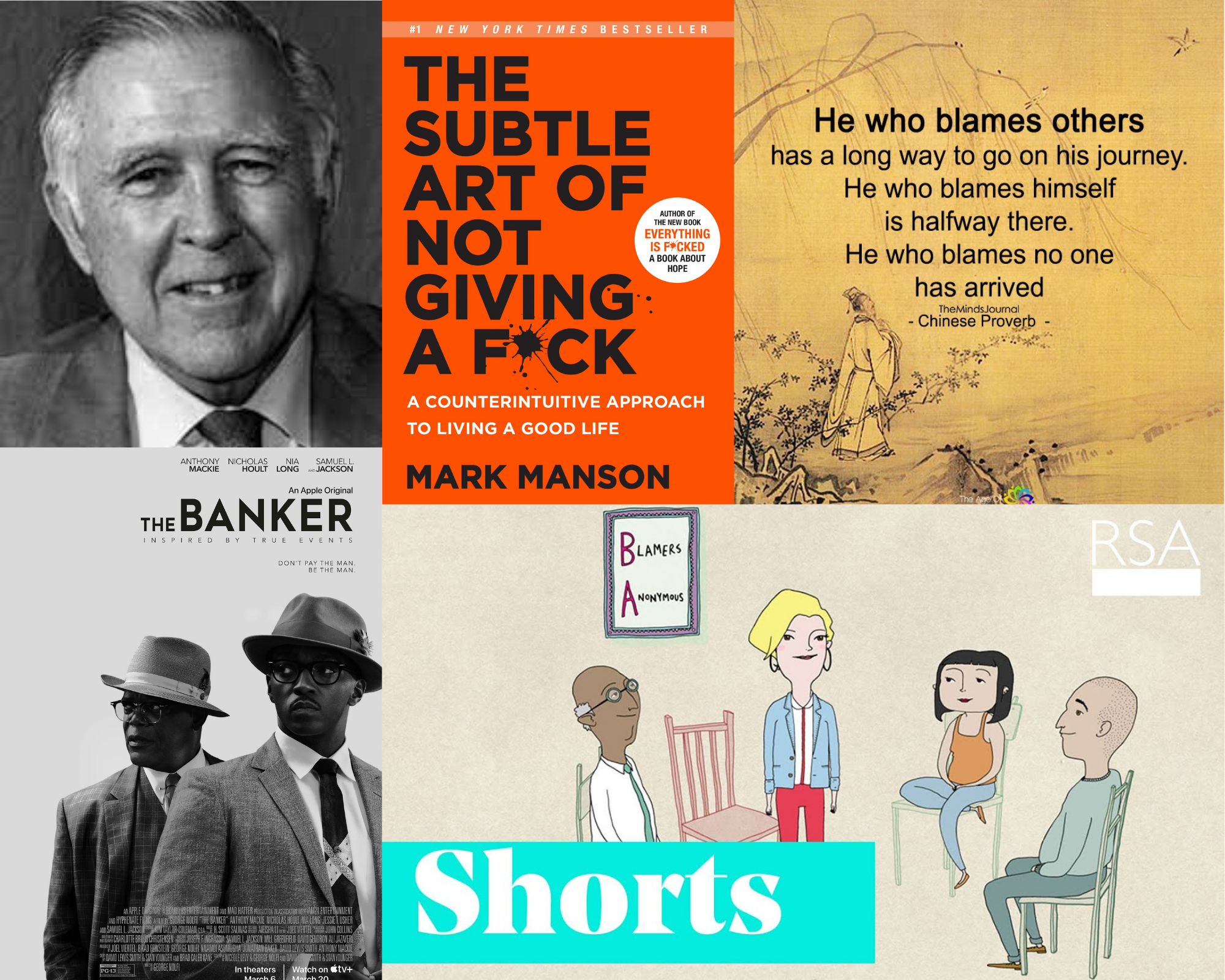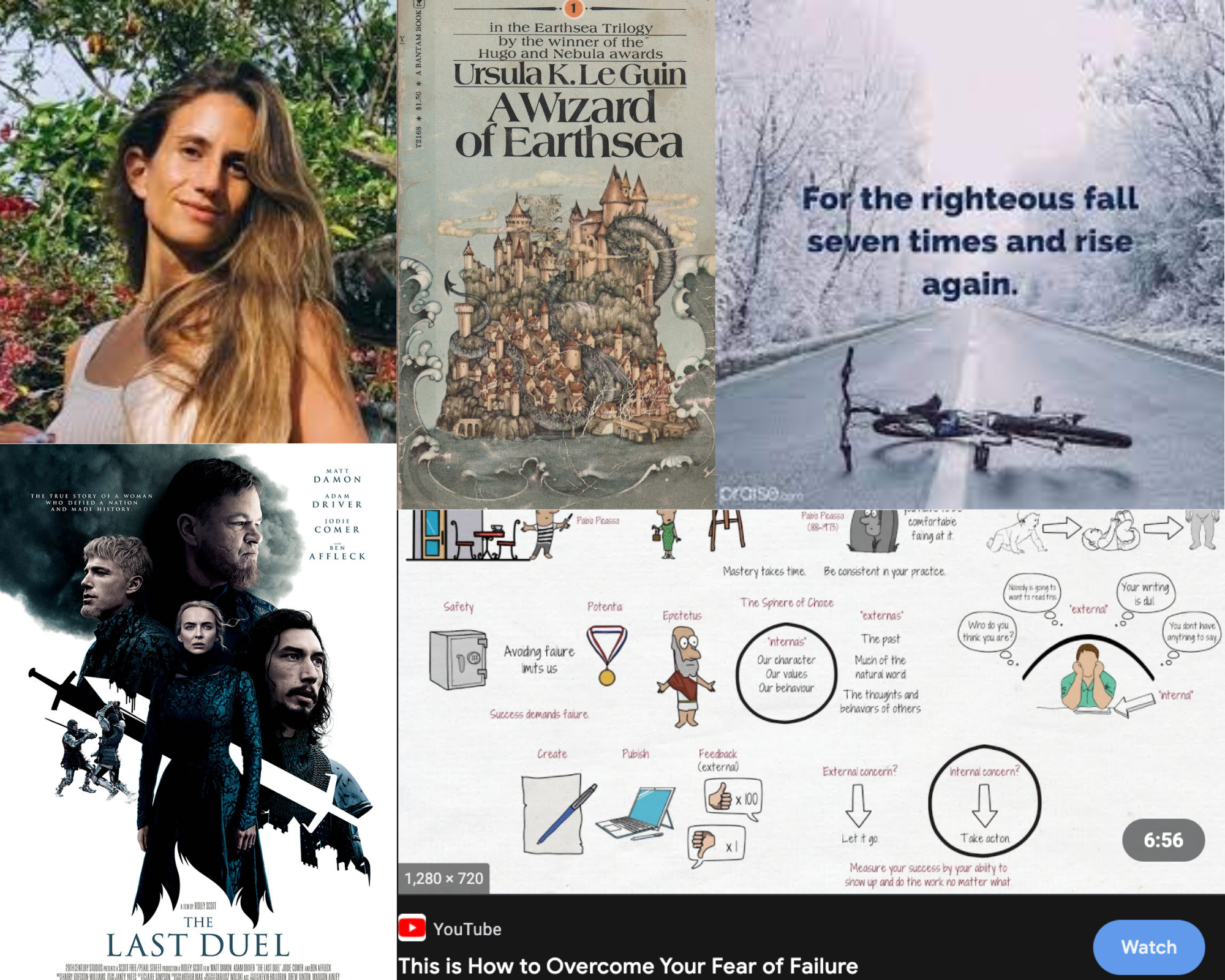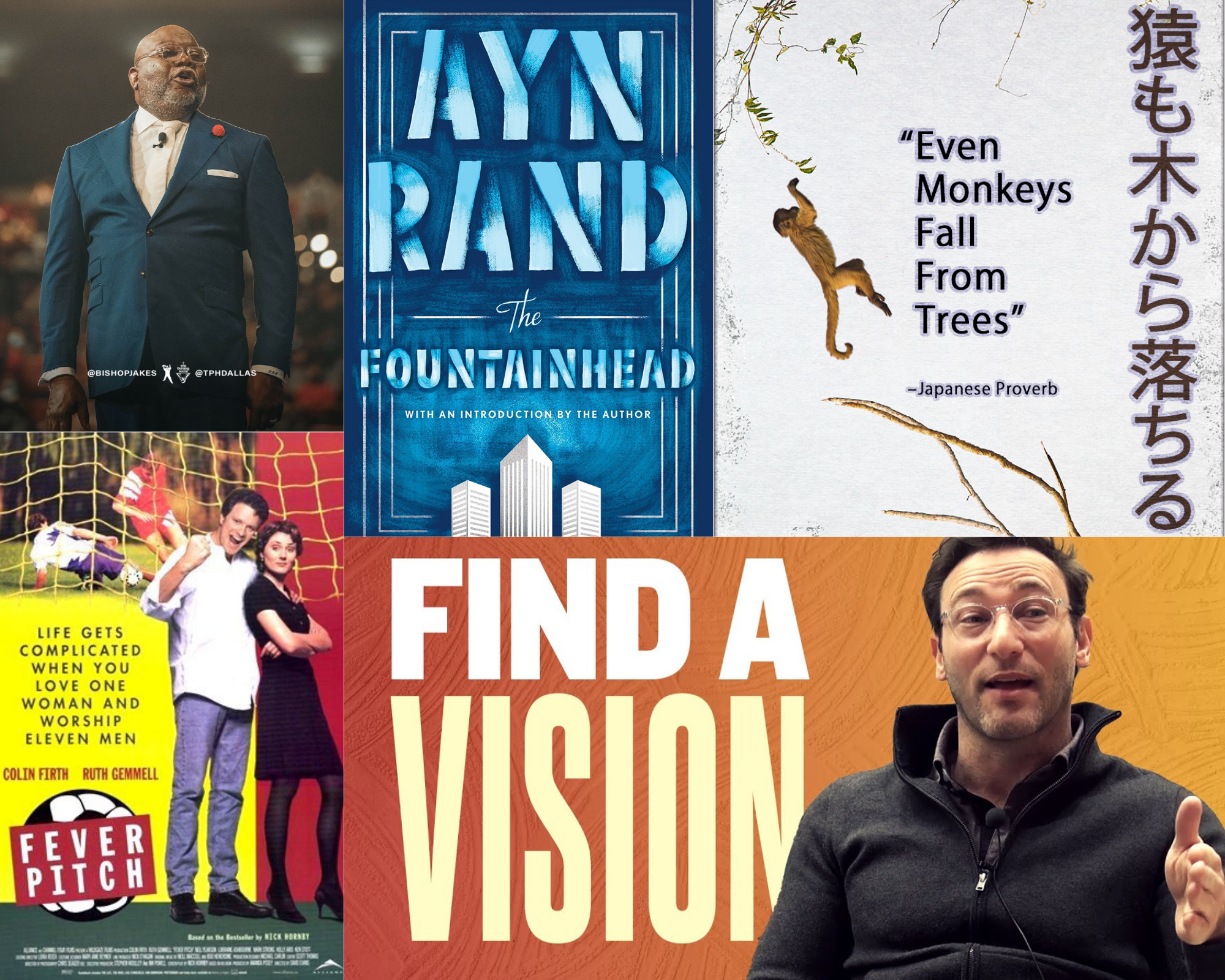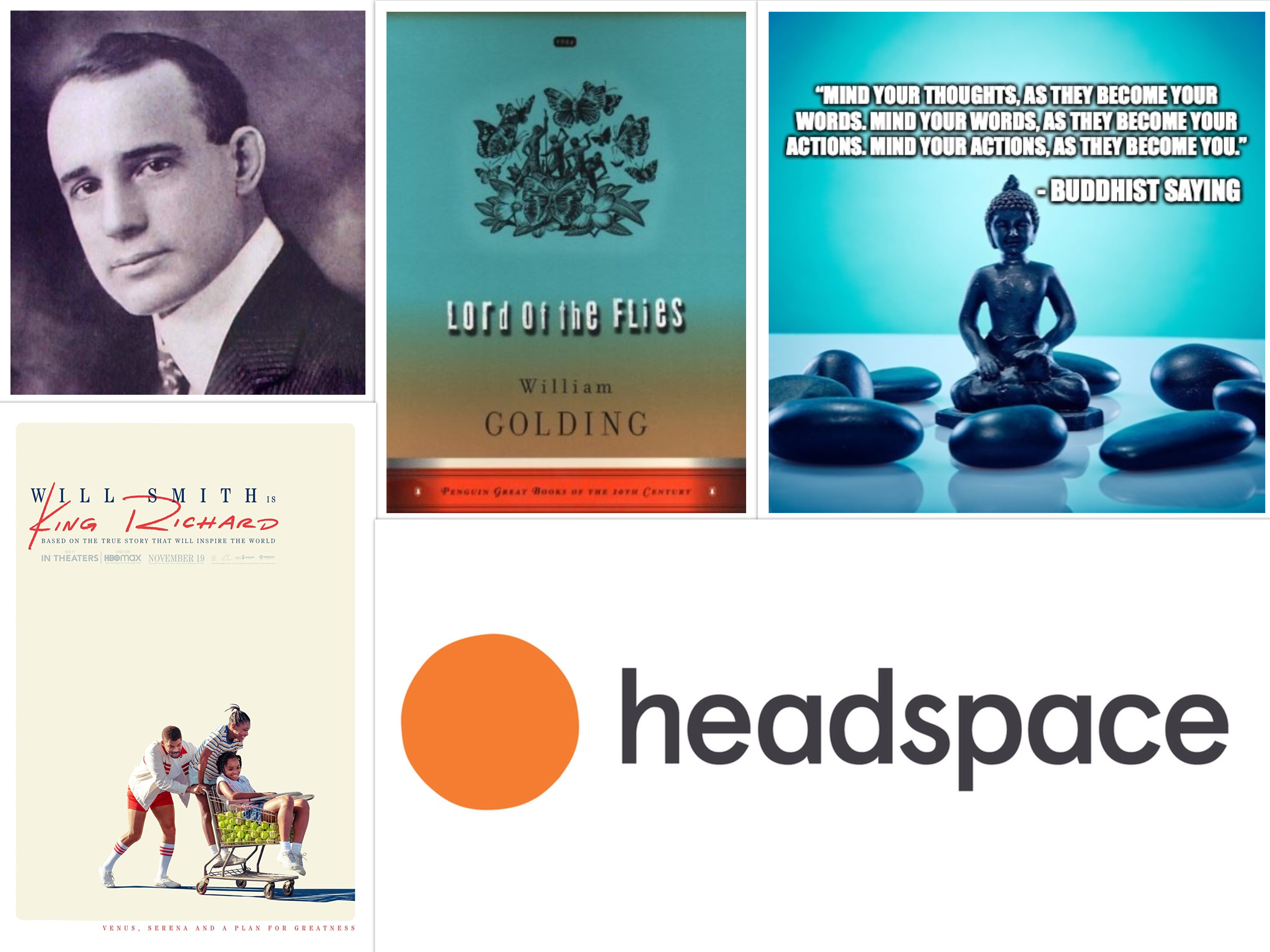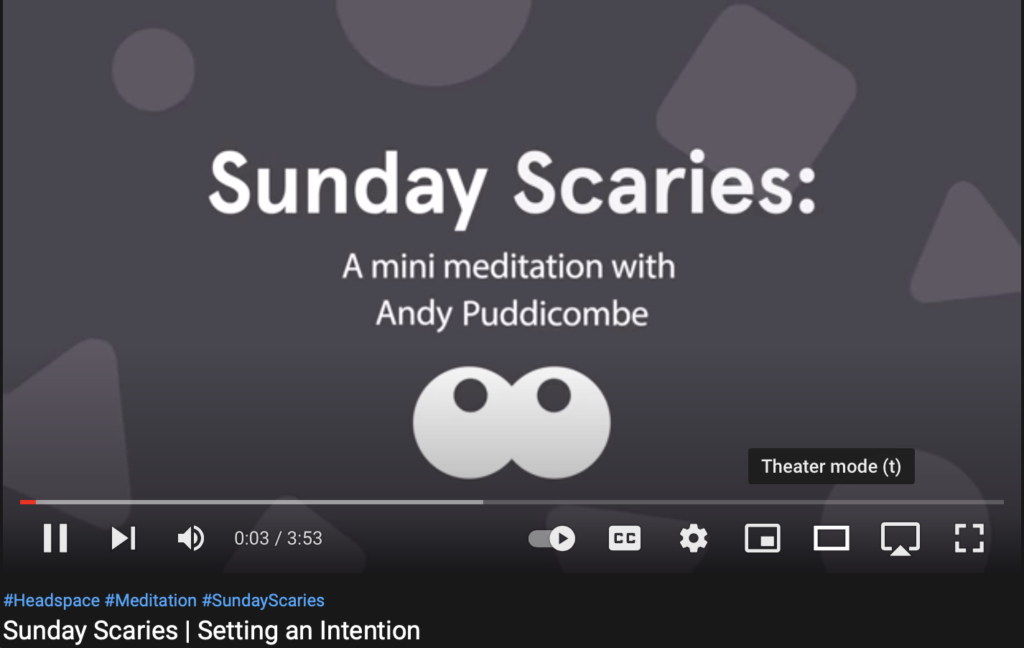Sunday Supplement #45 (March 20th, 2022)
Below is another Sunday Supplement with a quote worth sharing, a book worth reading, a movie worth watching, brainfood worth consuming, and a spiritual passage worth pondering.
I hope you take something away from these recommendations that enriches your week ahead!
Quote of the Week:
“When you blame others, you give up your power to change.”
– Robert Anthony
Book of the Week:
The Subtle Art of Not Giving a F*ck – Mark Manson
You might have seen this book with the bright orange cover at Barnes and Noble. I walked by it, thinking the title was terrible, but it eventually was gifted to me, so I read it.
While there are some messages in the book that I don’t wholeheartedly agree with or think were presented in the best way, there is much wisdom in its pages.
There are many lessons in the book centered around finding the things you want to do, even with the challenges that come with them.
Manson calls out much coddling that happens in modern times and questions the readers on what they are willing to learn about themselves while being brutally honest about the results.
Once we stop running away from self-knowledge and start confronting truths about the situations we find ourselves in, we can move forward with courage, perseverance, responsibility, and curiosity.
The Subtle Art of Not Giving a F*ck has spent over 244 weeks on the New York Times Advice, How-To & Miscellaneous list. It’s worth checking out.
Movie of the Week:
Inspired by true events, The Banker tells the story of entrepreneur Bernard Garrett as he becomes one of the first wealthy African American entrepreneurs in the United States.
Garrett was born in Willis, Texas, and later moved to California, where he started to amass a fortune in real estate.
Because of racism in America, Garrett and his partner Joe Morris worked with a working-class white man, Matt Steiner, who pretended to be their business head.
Anthony Mackie stars as Bernard Garrett, with Samuel L. Jackson brilliantly supporting as Joe Morris. Nicolas Hoult also holds his own as Matt Steiner, and Nia Long adds a significant presence as Eunice Garrett.
The Banker received negative press after the sexual allegations against Bernard Garrett’s son and didn’t make much of an impact upon its release.
The film about Bernard Garrett Sr is well-done and tells a story worth seeing and knowing.
Brainfood of the Week:
Brené Brown on Blame
I’ve featured Brené Brown in two previous Sunday Supplements. She is the author of six number-one New York Times bestsellers and is an expert on vulnerability, courage, and empathy.
This video is an RSA (Royal Society for Arts, Manufactures, and Commerce) YouTube clip of Brown talking about what happens when we blame others.
In the animated video, Brown tells a story about her spilling a cup of coffee in the morning and how she immediately blamed her husband.
Her mind created a narrative of how her husband’s actions from the previous night resulted in her spilling the coffee in the morning.
Brown then breaks down the story and uses it to explain the components of blame. Usually, the first thing we want to know is who’s fault something is.
People might even want it to be their fault rather than it being no one’s fault. This thought process gives us some semblance of control.
However, Brown explains how blaming is the discharging of discomfort and pain. There is an inverse relationship with accountability.
While accountability brings vulnerability, where we are willing to reveal how we feel and listen to others’ experience events, blame engages judgment through anger while shutting out other narratives.
When we blame, we miss opportunities for empathy.
The full video is only three minutes long and a good sample of the work of Brené Brown. And RSA’s YouTube page has many other brilliant clips sharing knowledge with over 100 million views.
Closing Spiritual Passage:
“He who blames others has a long way to go on his journey. He who blames himself is halfway there. He who blames no one has arrived.”
– Chinese Proverb
This Chinese proverb exemplifies one of the most important lessons I’ve learned and try to remember whenever I encounter frustration.
Many different wisdom traditions, religions, and cultures have a similar saying or quote to emphasize the importance of seeing things clearly.
When anything happens, we usually craft a narrative around the event. That story we tell ourselves is our perceptions of events and typically triggers our reaction or response.
The Chinese proverb reminds me how crucial it is not to attribute blame. Our narratives are in our own hands, and we decide how to move forward.
Rarely do people try to make mistakes, and blame is an action that doesn’t help anyone. Putting that emotion on yourself or others takes up energy that could be used fruitfully in other ways. That shift in energy takes the past away and shapes your future.
Leave blame behind, think of what you should do next, and have a blessed week ahead!
8 Comments